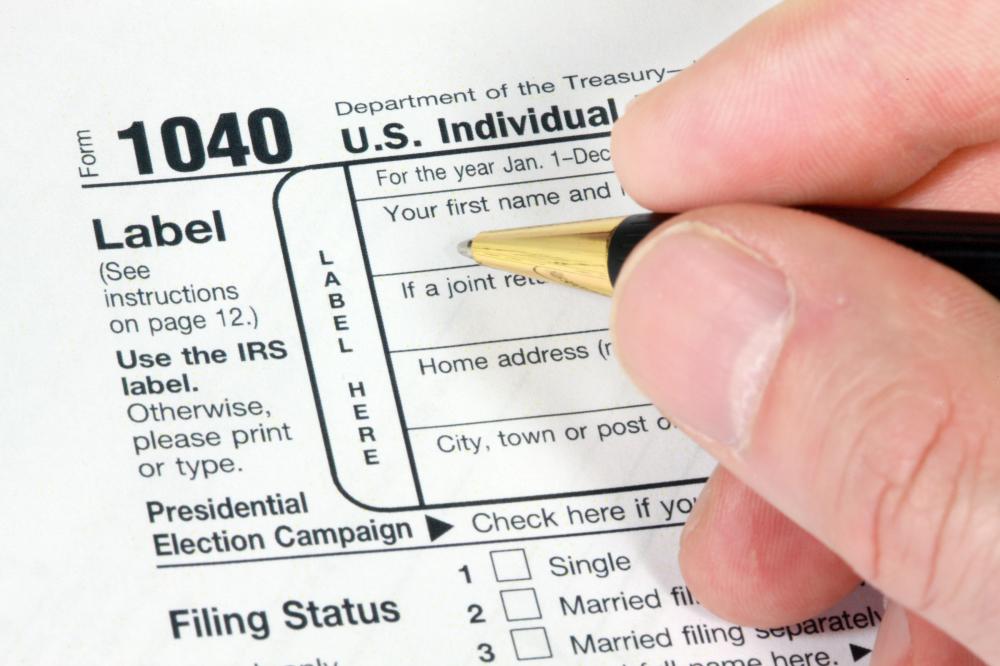At WiseGEEK, we're committed to delivering accurate, trustworthy information. Our expert-authored content is rigorously fact-checked and sourced from credible authorities. Discover how we uphold the highest standards in providing you with reliable knowledge.
What are the Different Types of Tax Preparation Fees?
Tax preparation fees vary widely depending on which company, individual, or branch office is calculating the rate. There is no set standard that tax preparers use to determine tax preparation fees. Tax preparers may charge a set fee for each form or schedule or per data entry item entered. Some tax professionals have a minimal fee with extras added as the return grows more complex, or they might charge an hourly rate. Many tax preparers charge extra fees for services like audit insurance.
It’s common for tax preparation fees to begin with a standard fee for a Form 1040 or Form 1040A and add extra fees for schedules and additional forms. Consumers should inquire about exactly what is included in tax preparation fees, especially inclusion of state and local tax returns and fees for electronic filing. Many companies allow customers to ask questions at other times of the year for free. A consumer who is knowledgeable about his or her tax situation and knows which forms are required can get a fairly accurate estimate to take to other companies for comparison.

On average, retail tax preparation firms and accountants charge roughly the same fees. But the upper and lower ranges may vary widely, so it does pay to compare fees by asking for an estimate from several companies. Consumers should never assume that large, well-known companies know more about preparing taxes than smaller companies, nor should consumers assume lesser-known companies have lower fees than large companies.
Some tax experts advise that consumers approach tax preparers by November or December to negotiate fees and to discuss what to expect before the tax rush occurs in February, after W-2 forms are mailed. Customers will feel less pressure and receive more attention from tax professionals before the busy tax season begins. It may even be possible to lock in a lower tax preparation rate by approaching a tax preparer earlier.
Consumers should always beware of illegal fee structures. Tax preparers may not base tax preparation fees on a percentage of the tax refund. Customers should always ask about unnecessary extra fees, like audit insurance. Consumers should be aware that the company’s basic policy may already cover fees and expenses related to an audit, rendering audit insurance unnecessary.
Individuals who are preparing tax returns on their own may contact volunteer help lines staffed by professionals for free help with tax questions. There are also services that answer questions for a flat fee per question. While these services may give more attentive service, the answer is usually available for free through an Internet search or a volunteer help line.
AS FEATURED ON:
AS FEATURED ON:











Discuss this Article
Post your comments